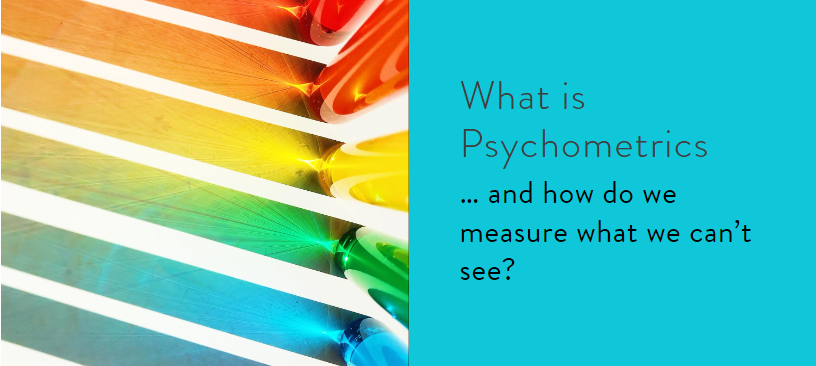The Skinny on Psychometrics
March 12, 2019
“I often say that when you can measure what you are speaking about and express it in numbers, you know something about it; but when you cannot measure it, when you cannot express it in numbers, your knowledge is of a meager and unsatisfactory kind.”
Lord Kelvin
By Eric Fox
We recently launched our FitScore assessments and you may have noticed growing mentions of Psychometrics in hiring and team building if you follow the news around the future of work. If you’re wondering, “what really is psychometrics?”, our Director of People Analytics and Industrial/Organizational Psychologist, Eric Fox, has your answers.
Psychometrics is the practice of quantifying and qualifying mental capacities and processes. This includes things that do not seem obviously measurable or tangible --such as employee satisfaction, math knowledge, short term memory, consumer opinions, verbal reasoning abilities, IQ, mental disorders, and personality.
Psychological phenomenon can only be observed through indirect methods and are therefore measured differently than other fields of scientific study (In physics and chemistry, you can directly measure what you are testing, be its weight, density, temperature etc). The best method currently available to access and quantify the inner workings of an individual’s psychology is a standardized test which is also known as a psychometric assessment.
You are likely already more familiar with this concept than you realize if you ever took the SATs, one of the most well-known psychometric assessments. The SATs are interpreted by college admissions to predict which students will perform best in their programs. Like other psychometric assessments, the SAT has been rigorously tested to ensure it actually predicts performance in college based on performance in specific competencies that are relevant to success in college. It is also rigorously tested for fairness and to reduce potential racial and gender bias.
But don’t worry, psychometric assessments that you may take in the future in conjunction with your career (including your Hire an Esquire onboarding) likely won’t give you SAT flashbacks and panic attacks. Psychometrics tests vary because they are built to the context and use-case. For example, a test to understand your communication style as an employee will be different than the SATs or a psychometric assessment to measure your baseline understanding of expertise crucial to a job application.
An important distinction between psychometric assessments and something like Myers-Briggs (what we like to call Astrology for Psychology) is results and correlation. Like the physical sciences such as medicine, engineering, and space exploration, psychometric predictions must be shown to correlate with the end result. Based on supervisors ratings of job performance in specific areas, a psychometric test for employment is given validity based on how well it correlates to performance.
Psychometric tests for hiring like the ones we’ve developed for Hire an Esquire (personality assessments and structured interviews) are shown to have much higher levels of correlation to job success than traditional methods of hiring such as resume reviews and unstructured interviews. Here is a table of predictions to put correlations and results for psychometrics and specifically hiring personality assessments into context with other correlations with which you may be familiar:
Table of predictions
Small correlations matter!
Correlation is measured from -1 to +1 (where +1 would mean a 100% correlation)
